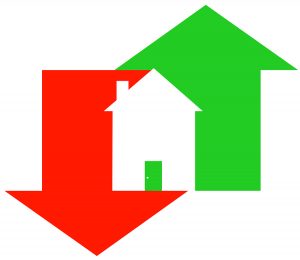Should Retirees Buy or Rent?
April 3rd, 2018
A spate of recent news reports have suggested that Canada’s seniors and retirees would be better off to rent their living space rather than to own it.
Proponents say there are a lot of freedoms that come with renting: it frees up your finances and your time from all of the indoor and outdoor maintenance that comes with owning a home. The other perhaps equally big benefit is the amount of equity homeowners can have access to upon selling.
Using that equity to pay for rent and some of life’s pursuits such as travel, cars and dining out are an added bonus. Oftentimes, senior homeowners might have enough equity stashed away that the returns on their invested funds nicely cover the cost of rent.
According to Moneysense.ca, 68 per cent of Canadians are homeowners with the rate rising as people age. The home ownership rate peaks to 75 per cent at about age 65. Rates level off until age 75, where they begin to decline.
But being a renter isn’t all fun and games. As a tenant, you have far less control than an owner about such pursuits as decorating, remodelling and owning pets. Growing accustomed to that loss of control can be frustrating and hard to handle, especially for someone who has owned their own home most of their adult life.
And being a cash-poor retiree whose assets are largely tied up their home’s equity isn’t the doom-and-gloom scenario it once was. With home equity lines of credit and reverse mortgages, seniors can tap into their home’s equity so they can enjoy the kind of lifestyle they’ve come to expect.
The other advantage is that your fixed housing costs likely won’t rise, unlike your rent. This, of course, does not hold true for property taxes and maintenance costs but it will for your mortgage especially if your rate is fixed. In fact, many senior homeowners live mortgage free so mortgage payments aren’t even an issue.
If you’re still uncertain and your decision comes down to dollars and cents, do the math. For buying, factor in mortgage costs, property taxes, insurance, utilities and maintenance. Compare those numbers to rents in the area you’re interested in. Use online websites to assess the rate increases that come with renting and be sure to include that in your calculations.
In the end, there really is no right or wrong answer to renting versus buying. Weigh the pros and cons of each and decide which suits you better.








